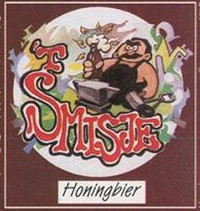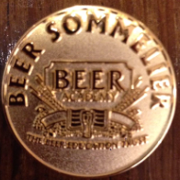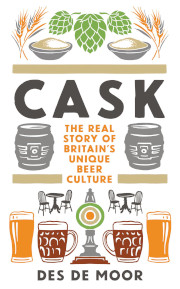
De Regenboog ‘t Smisje Honingbier
ABV: 6%
Origin: Assebroek (Brugge), West-Vlaanderen, Flanders
Website: www.smisje.belgianbeerboard.com
Date: 23 October 2000
Another review from the archive written for the pioneering Oxford Bottled Beer Database (OBBD). I’ve left it uncorrected — so please read it in that historical spirit.
De Regenboog (The Rainbow) was originally a printing business founded by homebrewer and beekeeper Johan Brandt. He began brewing commercially on a part-time basis in 1997 using the brand ‘t Smisje (the neighbouring house had once been a smith’s shop). In response to tightening hygiene regulations, brewing ceased at the original site in a suburb of Brugge in 2008, restarting in new premises at Mater near Oudenaarde under the name Smisje. Despite the beekeeping background, the honey beer is no longer brewed — a shakeout of brands in 2010 saw the brewery concentrating on a much smaller number of beers.
This honey beer from ‘The Rainbow’, a very small micro near Brugge, was one of the specialities on offer at 2000’s Great British Beer Festival: the suitably artisanal trademark means ‘the little smith’ and the honey is apparently collected from the brewery’s own bees.
The beer is well-made but nothing outstanding. It’s a cloudy amber colour, overcarbonated at first, and slightly estery with a honey and toffee fudge nose. After scenting the honey, the dry and attenuated taste comes as surprise: there’s also toffeeish malt and orangey-plum fruit and where the honey really makes its mark is in the subtley silky texture, at least once the CO2 has settled down a bit.
The finish brings citric hops, malt and more gentle honey. Perhaps, in trying to avoid the risk of making a honey beer that’s too sweet and cloying, the brewers have erred slightly too far on the side of caution.





Leave a Reply